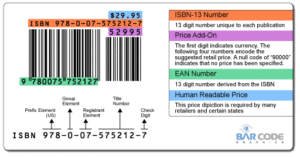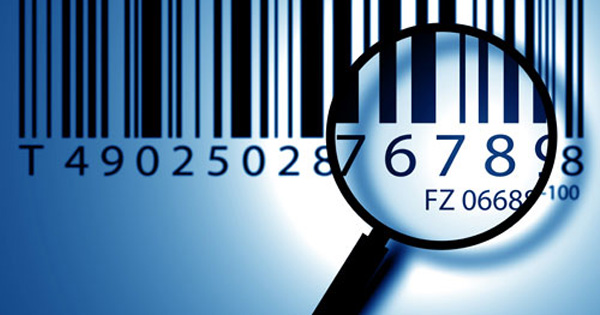What is an ISBN? A Guide for Author
If you’re a writer in the age of self-publishing, getting yourself an ISBN is a must-do. Have you ever wondered what an ISBN is and why it’s so important for writers? In this article, we’ll take a look at exactly what an ISBN is, how to get one, and why it’s so essential in the publishing world. We dive into what having your ISBN means in terms of protecting your work in the digital landscape. Let’s get started!
- A tool to organize books
- What is an ISBN and what does it stand for?
- How do you get an ISBN?
- What are the benefits of having your ISBN?
- What are the disadvantages of not having your ISBN?
- Do ebooks need an ISBN?
- How are ISBNs different from barcodes?
- How to use your ISBN in the publishing world?
- The importance of an ISBN in the digital landscape
- Why every author should have an ISBN for their books?
A tool to organize books
The concept of ISBN is nothing less than revolutionary in terms of helping to organize the world of books. This thirteen-digit numerical code serves as a unique identifier for cataloging, ordering, and tracking publications worldwide.
With its development in the 1970s, this powerful tool enables libraries, booksellers, countless online bookstores, and wholesalers to manage their vast collections efficiently, by simplifying and expediting the process of searching for any particular book with its array of required information being provided easily and quickly.

Ultimately, thanks to ISBN we have an easier time locating our favorite stories while also allowing us access to vast libraries of newly published materials that enable us to stay abreast (and even a step ahead) with new literary trends.
What is an ISBN and what does it stand for?
We begin by addressing the common question of what is an ISBN. An ISBN (International Standard Book Number) is an international system of book identification numbers that are used to uniquely identify each edition of a book. It consists of 13 digits that play a vital role in the purchasing, ordering, and cataloging process when it comes to books.
The ISBN stands for International Standard Book Number and is a numeric commercial book identifier that is mainly published by publishers to differentiate their books from other publishers’ titles.
This identifier enables libraries and vendors to accurately track sales, and purchase orders and effectively manage their inventory. Additionally, retailers rely heavily on this information as it helps them stay informed about what titles are popular among their customer base.
Each of the thirteen digits in the ISBN carries a specific meaning, beginning with the concept that the first digit signifies whether the ISBN was assigned in the country of its origin or for export purposes.
The second and third digits in the ISBN stand for the language group, followed by 4 more numbers that identify the particular publisher associated with the work. Then, 6 more numbers are allocated to represent a particular title from that publisher’s list.
In some cases, the remaining digit may be used as a “check digit” for accuracy purposes. It’s clear to see why having an ISBN is so important — not only does it detail all relevant information about a piece of work, but also helps bookworms everywhere find whatever they are looking for just by knowing this simple asset!
How do you get an ISBN?
For any avid reader, the International Standard Book Number (ISBN) is a familiar part of book buying. But what many don’t realize is just how easy it is to get an ISBN for your book if you are fortunate enough to be writing one!
The process for getting an ISBN involves four primary steps. First and foremost, understand what an ISBN is, what purpose it serves, and what the information associated with it looks like. This information will come in handy during the second step which requests you contact the organization distributing ISBNS in your country or territory.

You will then complete an application detailing what kind of publication you are producing and receive your official International Standard Book Number shortly thereafter.
Finally, you simply record this number along with any other pertinent publishing details on your future works. By sticking to this straightforward procedure, you’ll be well on your way to gaining the recognition you deserve as an author!
Any individual or entity wanting to publish a book, such as an author or publisher, can apply for an ISBN.

Some organizations also require copyright registration to apply for an ISBN, as this helps protect authors from others attempting to use the same title or number. The ISBN must be assigned before any book can be printed and distributed. Those applying for an ISBN will need proof of ownership such as copyright registration documentation or a letter of permission from the original author if publishing a piece under license.
Additionally, applicants should have ready to submit information like acquisition agreements, final manuscripts, and title information before obtaining the ISBN.
What are the benefits of having your ISBN?
Having your ISBN (International Standard Book Number) can be a great asset to any author.
Having your ISBN will give you more control over the publishing process of your work and what information gets associated with it.
With an ISBN, you can create a higher-value product, since customers can quickly and accurately find what they are looking for in both physical and digital stores.
Additionally, it gives you the freedom to make changes or replacements if needed while understanding what editions have been published, marketed, and purchased by consumers.
Finally, having your ISBN will provide authors with a higher level of credibility by appearing more professional on the online market with their artwork. In sum, an ISBN is essential for authors looking to make an impact with their work and take their career as authors even further.
What are the disadvantages of not having your ISBN?
ISBNs are vital when it comes to the publishing industry and becoming an author — this is because ISBNs can be used to track a book’s sales and ensure that an author remains unique and is credited for their work. Not having ISBNs for books affects more than just tracking sales.
ISBNs also allow for a more organized system of organizing books in libraries and bookstores around the world. Without ISBNs, this can become confusing as there may be multiple books with similar titles, which makes it difficult to locate specific works.
Furthermore, retailers need ISBNs to order or stock books they intend to sell to readers; without ISBNs, they tend to purchase from larger publishers who already carry ISBNs. To sum up, ISBNs are vital components of the publishing industry; unfortunately, not having an ISBN creates logistical issues and decreases an author’s visibility in the market.
Do ebooks need an ISBN?
ISBNs (International Standard Book Numbers) are quickly becoming a necessity for any type of book or publication.
ISBNs are indeed beneficial for both physical books and digital files since the ISBN will make it easier for potential customers to locate the title among many other competitors.
Additionally, ISBNs can provide a level of legitimacy for a publication, as distributors require ISBNs to stock digital items in their stores. To sum up, an ISBN is required for both conventional print books/magazines and ebooks, as it serves to ensure uniqueness and allow customers to find them on store shelves.
How are ISBNs different from barcodes?
ISBNs and barcodes are two different systems that are used to identify products. ISBNs, which stands for International Standard Book Numbers, are 10 or 13-digit numbers that uniquely identify books released by publishers so they can be tracked.
ISBNs enable retailers, bibliographers, and libraries to easily recognize, order, and stock books. On the other hand, barcodes are one-dimensional symbols including vertical lines of varying width encoded with a unique number which is used to store product information in a database.
Barcodes allow machines to quickly scan and identify products for checkouts such as groceries or other retail items. An ISBN code is always specific to a book and therefore ISBN codes cannot be re-used where barcode numbers are widely used across multiple products and can be reused. Simply put, ISBNs represent books whereas barcodes represent most material goods sold in stores.
How to use your ISBN in the publishing world?
When it comes to ISBNs, authors have the option of purchasing their ISBN or getting one free from their publisher. However, if they purchase their ISBN they will have access to all of the metadata associated with the ISBN and have complete control over how it is presented in the marketplace.
Whether you purchase an ISBN or receive it for free, knowing how best to use your ISBN is key. As a first step, you should make sure that all product listings across your book distributors include your ISBN information so readers can easily discover and buy your books.

Additionally, ISBNs show up when people search using library catalogs making them invaluable for any author looking to increase visibility for their titles.
The importance of an ISBN in the digital landscape
ISBNs (International Standard Book Numbers) are critical components of the digital publishing landscape and an important tool that provides essential data to authors, publishers, booksellers, libraries, governments, and other interested parties.
ISBNs give authors, particularly those who self-publish, a tried and trusted way to ensure that their work will be discoverable in all the major databases used throughout the industry.
Having ISBNs helps authors create a professional identity for their books in all marketplaces which can help build momentum for their work as well as visibility. Ultimately ISBNs provide publishers and self-published authors alike with a firm foundation from which to promote, distribute, and merchandise books around the world effectively.
Why every author should have an ISBN for their books?
ISBNs are invaluable for self-publishing writers.
ISBNs also allow authors to track orders and sales of their books, in addition to presenting an article as a professional and legitimate product to customers/readers.
Having your ISBN ensures that your book is better suited to be discovered and consequently has a better chance at success. In conclusion, every writer, especially self-published ones should have ISBN for their books so that the articles produced can get maximum exposure.
Knowing what an ISBN is and how it can be used can save you a lot of hassle when you’re dealing with books, both your own and someone else’s.
Not only is the ISBN important to have to let customers know which version of a book they are buying, but it also assures them of its various features like the number of pages and other customer-friendly characteristics that might otherwise be overlooked.
Having an ISBN is also critical for authors for marketing their works effectively and getting valuable feedback about their potential readership.
ISBN has become an important tool for tracking the identity of books, both physical and digital. While this technology has been in use for decades and is essential in global trade, the recent digital revolution demands that ISBN keep up with today’s innovations. With the help of cutting-edge technologies like machine learning and AI, ISBN can now offer readers complex search and analytics options to better access books.
In short, understanding ISBN is key to accessing information effectively, and it will continue to be a valuable resource as we move into a more technologically-minded world.

